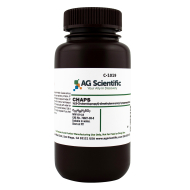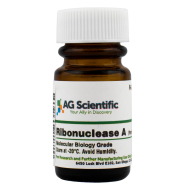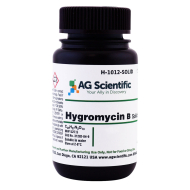Handling chemicals is serious business. In order for researchers to create the solution they need for an experiment, they have to choose reagents of the right chemical grades. Choosing an insufficient grade could have unanticipated affects when added to a system. When a chemical reagent is graded by its manufacturer, customers are able to determine how pure it is and whether it's the right chemical to use.
Here are five chemical grades that you will frequently come across in the life science industry. These chemicals are ranked from high purity to low purity. You'll find that each grade of chemical reagents can serve a useful purpose, depending on what you need most in a certain chemical.

1. ACS Grade
The grade given to the purest of chemicals, which is 95 percent and above. This grade is named after the American Chemical Society as a way to represent the most valuable chemicals. ACS grade is suitable for making drugs, food, and medicine. Chemicals of this grade also tend to be the costliest of all the grades.
2. Reagent Grade
The grade of chemicals slightly less pure than ACS graded chemicals. Even before an official chemical grading system, reagent chemicals were first established by The American Chemical Society in the early 1900s. Reagent is also a satisfactory grade that is second-best to ACS grade. With a purity of close to 95 percent, chemicals of this grade are also suitable for making drugs, food, and medicine.
3. USP Grade
Chemicals given the grade USP are tested favorably by the United States Pharmacopeia. These chemicals are pure enough to be suitable for drugs, food, and medicine, but they can also be used for educational and laboratory purposes. The USP grade is for chemicals that are less pure than reagent grade chemicals.
4. NF Grade
Chemicals that get an NF grade are issued by the United States National Formulary. In 1975 The USP merged with the NF and share a book of standards for drugs and medicine, titled the USP-NF. It is possible for chemicals to receive both NF and USP grades. The NF grade is planned to be phased out so that only the USP grade remains.
5. Lab Grade / Purified Grade / Technical Grade
These final three grades have a purity below professional standards. While these three grades are still considered very pure, they are not recommended for use in food, medicine, and drugs. Chemicals with any of these grades tend to be more affordable. Lab grade chemicals are pure enough to be used for educational purposes. Schools and businesses that involve teaching and training with chemicals find lab grade chemicals to be the most useful. Purified grade chemicals have a decent level of purity, yet do not meet any official standard. Like lab grade chemicals, purified grade chemicals are often used for educational purposes. Technical grade chemicals are ideal for commercial and industrial uses. These chemicals are primarily used for applications outside of consumables (i.e. manufacturing). In
Considering these different levels of purity, each can change a product in different ways and thus any chemical reaction they are being used in. Choosing a lower-grade purity could lead to a dip in quality or effectiveness. In the same vein, choosing an unnecessary high-grade could lead to overspending. Thus, it's important to determine the grades you need most for your specific products and research or manufacturing goals. AG Scientific is standing by ready to help supply the biochemical reagents you need for any life science application.
Additional Reading
-
Dithiothreitol (DTT) Applications You Must Know
-
TCEP HCl vs DTT: Preferred Reducing Reagents
-
5 Things to Consider When Choosing Biological Buffers



